Harbour Master
Harbour Masters
Worldwide there are approximately 3,000 merchant ports and the work of the Harbour Master can vary widely from country to country and from port to port even within the same country.
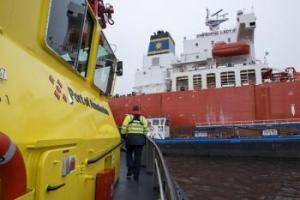
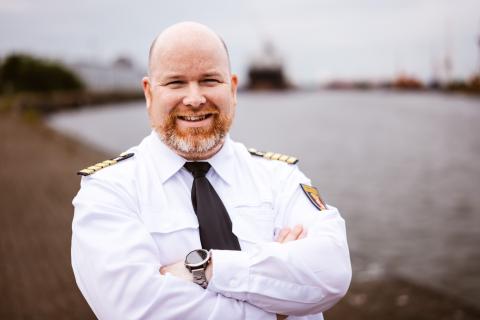
Harbour Master is the perfect job for him.
“I was just 15 when I first thought I would like to go to sea,” says Stephan Berger, Harbour Master in the Port of Bremen and Bremerhaven. “I was trying to work out what to do with my future and I’d always been very impressed by ships. It’s the sheer scale of them – the largest mobile man-made object on the planet.”
It was soon after this decision that Stephan became aware of a maritime career event that was taking place locally. He decided to go along and see what his options might be. It was here he learned of an internship offered by the VDR – the German Shipowner’s Association.
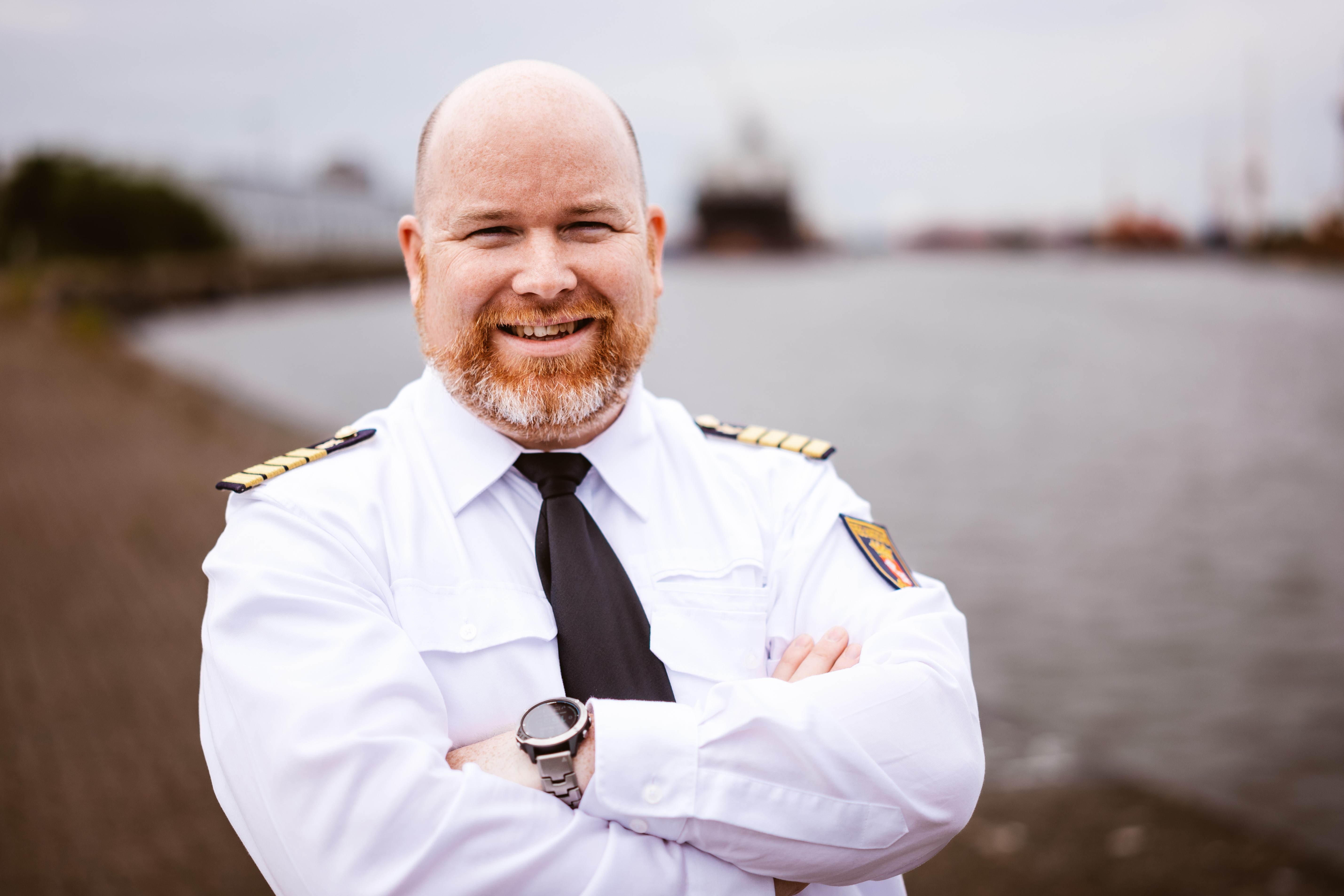
Bremerhaven: the starting point
This was how, in the school summer holidays of 1999, he found himself boarding a container ship in Bremerhaven, bound for the Americas.
“That’s where my relationship with the port started. If you had told me then I would one day be the Harbour Master, I would never have believed you.”
During his five weeks on board, Stephan made port calls in the United States, Mexico and the Bahamas.
“You can imagine, to a 17-year old from a rural area in the middle of Germany, this made a big impression. When I arrived back in Bremerhaven, the decision was made; I wanted to go aboard and become a master.”
Perfect maritime promotion
One of the factors that influenced his decision was the perfect conditions he encountered during his time onboard.
“It was the perfect promotion tour. Five weeks without wind and constantly calm seas. If the conditions had been different I may have made a different choice. Later, when I started my career, I discovered I suffer from seasickness. I continued in the job though. I think that shows my dedication to it. I really wanted it.”
In 2006, Stephan finished his studies and joined Hapag-Lloyd as a nautical officer. He worked his way up until, in 2016, he became a Captain.
A memorable time at sea
Stephan experienced a memorable 15 years at sea. One of the moments that stand out for him from this time is the sinking of the MOL Comfort in the Arabian Sea in 2013. In bad weather, and 7 metres of swell, some 200 miles from the coast, the 8000 TEU vessel cracked in two.
To make matters worse, the lifeboat also capsized. Stephan was responsible for the rescue operation. Thankfully, he and his colleagues were able to get every one of the 26-strong crew safely out of the water – in just 26 minutes.
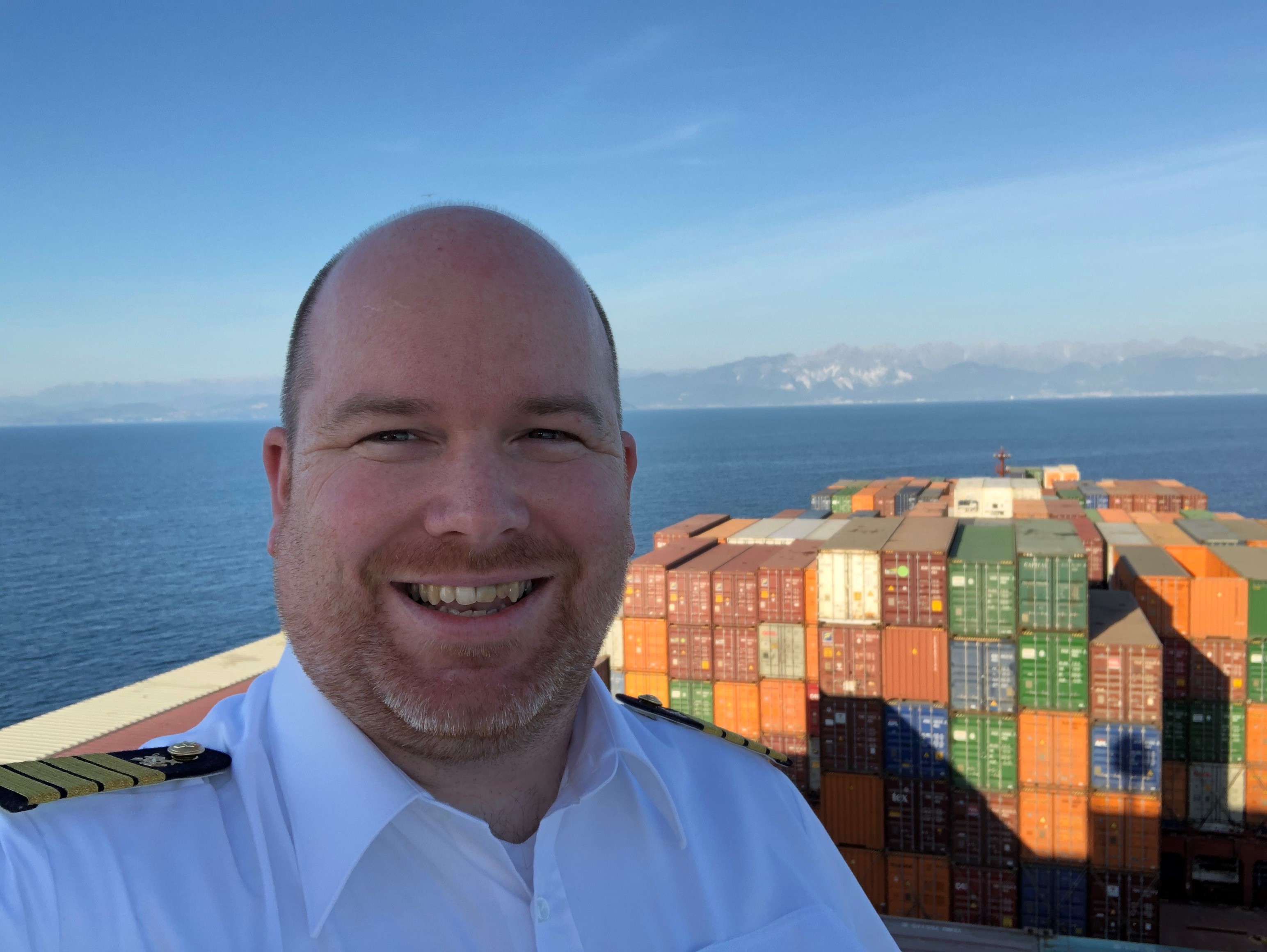
Back on dry land
In 2020, it was time to come ashore.
“As a Captain, you’re got as far as you can go on board. Plus, I wanted to spend more time with my family. I was looking for opportunities and a friend sent me the vacancy for Harbour Master in the Port of Bremen and Bremerhaven. I didn’t think I was the right candidate to begin with. There were so many specific skills and qualifications required, but my wife said, ‘Give it a try, you never know’. So, I sent in my application.
“They asked me when I would next be ashore and we arranged an interview for January 2021. I left the vessel on the Tuesday. The interview took place on Thursday and on Friday, I heard that I would be the new Harbour Master. It was a pretty quick turnaround.”
It was perhaps fortunate that Stephan received the offer while he was on dry land.
“I was still a Captain at heart. If I had to make the decision while I was at sea, I might not have been able to say yes. In this case, though, I was at home and I took the job. After all,” he laughs, “Harbour Master sounds pretty cool!”
A whole new world
The new life was, he says, like entering a completely new world – despite the continued maritime connection.
“The role of Harbour Master is very challenging – and I like that. This job is exactly what I was looking for. There are so many possibilities. You have to find solutions all the time. There are challenges on board, too, of course, but there is not this level of diversity.”
Global pandemic and geopolitical conflict
In the three and half years he has worked as Harbour Master so far, Stephan has certainly encountered his fair share of challenges. In fact, commencing the role in the middle of the corona pandemic, the challenge was immediate.
“When I started there were still lockdowns in force. There were more and more vessels coming into the port with infected people on board and the ships had to be detained to prevent the spread. In the beginning, the detainment period was fourteen days. We even had cruise ships with crews of 200 people we had to find accommodation for. It was quite a big action.
“Still, there were some good results. Our port was one of the first to offer vaccinations to ships’ crews. This was one of the first things I did here and I’m very proud of that.”
Early the following year, Russia invaded Ukraine. The port was required to enforce EU sanctions on vessels carrying cargoes for Russia. This has the same potential as corona to full up the port with ships that weren’t going anywhere fast.
“We had to reach an agreement with the customs authorities that, while we would detain the cargoes, we could not detain the ships.”
Baptism of fire
Then came what Stephan refers to as his baptism of fire.
“I received a phone call on April 1st – I thought it was a joke to begin with. There was a ship on fire in the port. It was no joke. We ended up fighting that fire for the best part of a week.
“To compound the matter, at one point we received news that there was a vessel in another part of the port sinking.
“The local fire brigade told me that fire was one of the most challenging events they had ever experienced. After all, they’ve got work to do outside the port as well. It worked out in the end. We managed to get the fire under control and to keep the other vessel afloat.”
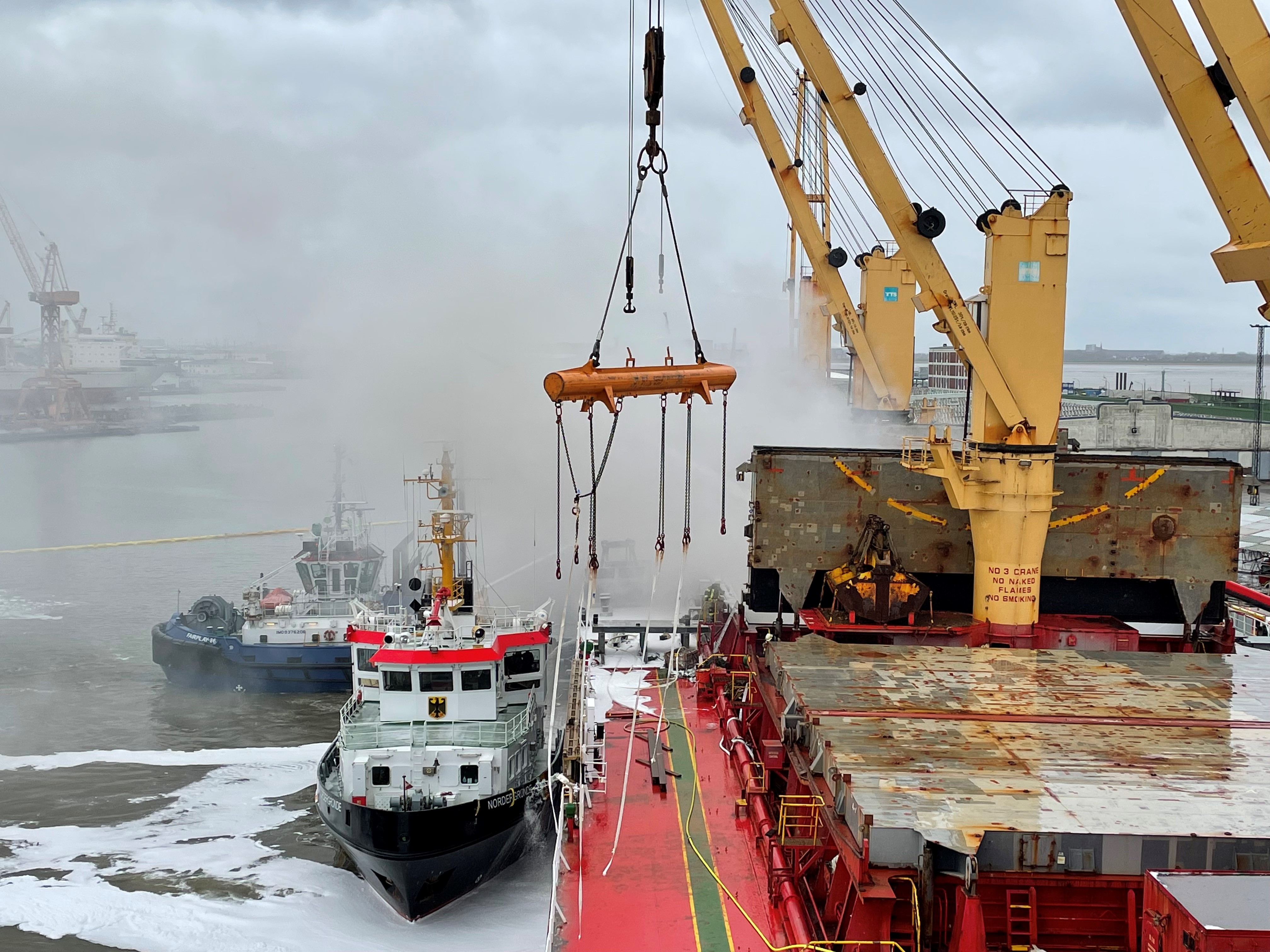
Abandoned ships
2023 arrived with more challenges, a notable example of which was three vessels abandoned in the port with crew aboard.
“We received an SOS. The crew were out of water and the sewage tanks were full. My first thoughts were for the seafarers. I knew we had to help them. We were able to supply fresh water, empty the tanks and, eventually, to repatriate them.”
The latter was complex, he explains. Port regulations require that someone be on board to supervise the vessels at all times.
“The crew had been on board for months, though. They needed to get home and find other jobs to be able to pay their bills. So, we found someone to safeguard the vessels in the absence of the crews.”
The importance of a global network
The challenges he has encountered in his first years as a Harbour Master are, Stephan says, a good demonstration of the important role the IHMA can play.
“Joining the IHMA, together with the German Harbour Masters Association, was one of the first things I did when I started in the role. The state of Bremen wants us to be involved. They see the benefit of the network and of a connection that offers Germany a voice internationally.
“When I started in 2021, I was new to the job. I didn’t know many people. I was fortunate that I knew the Harbour Master in Hamburg and could turn to him for advice. But now, as a member of the IHMA, I can reach out to people in ports all round the world who have experience in similar situations and know the regulations. The IHMA network has the potential to be very helpful.”
Promoting best practice
Another role the IHMA can fulfil, Stephan says, is in providing industry guidance in best practice.
“You have a membership base of a lot of highly knowledgeable people. Bringing those people together offers a benefit greater than the sum of its parts. It provides a chance for us to develop industry standards – as we have in port call optimisation, for example. That way you have something you can distribute across the port network that enables the sharing of information in a common language.”
During the IHMA Congress in Morocco this year, Stephan was elected to the Executive Committee and as a Vice president of the association.
“I’m very happy to be on the ExCo and proud to be a Vice President, playing a part in shaping the future of the IHMA. This is also a challenge. We have to consider what we want to achieve and how we are going to do it. We have a good President in Paul, who is interested in bringing things forward. I’m really pleased to be supporting him in this.”
Founded in 2017, MarineLabs delivers high-resolution, real-time, and historical wind, wave, and weather data, as well as hyper-local 10-day forecasting, from a growing network of cloud-connected, rugged sensor nodes.
The International Harbour Masters Association (IHMA) and the Port of Rotterdam Authority are pleased to announce the 15th International Harbour Masters Association Congress, to be held from 09–12 June 2026 at Theater Zuidplein in Rotterdam.